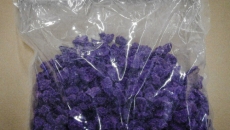Predictions of a fall COVID-19 wave make another booster vaccine campaign likely but questions abound over how the virus will continue to evolve and what protections a new shot could offer.
Several vaccine manufacturers are racing to develop formulas that take into account the more infectious Omicron variant now driving cases, while policymakers are laying the groundwork for another large-scale vaccine blitz.
Much of this hinges on expectations that a so-called bivalent shot can blunt a potential future surge as flu season sets in, and alleviate pressure on a strained health-care system.
The National Advisory Committee on Immunization last week released interim guidelines for a fall program it said was most important for older adults and those at increased risk of severe COVID-19. It also noted that while vaccine protection against symptomatic disease wanes over time, protection against severe disease is better maintained.
In the United States, advisers to the Food and Drug Administration said last week that fall boosters should contain some version of the Omicron variant.
NACI stopped short of urging a specific formulation while it awaited more evidence, but did say a bivalent shot could encourage uptake in the fall.
Here's a look at the next stage in the fight against COVID-19.
WHAT ARE BIVALENT VACCINES?
Currently available COVID-19 vaccines are monovalent – tailored solely to the original novel coronavirus. The proposed bivalent vaccines target specific mutations in the spike protein seen in both the old strain and newer Omicron strain, which itself has spawned several more infectious subvariants dominating infections today.
In essence, bivalent vaccines are a split between the old "original" mRNA sequence and the new sequence, says infectious disease specialist Dr. Zain Chagla.
"So for example, Moderna's bivalent is 25 mcg old vaccine, 25 mcg updated vaccine," he says.
The basic principle is already well-established with the flu vaccine, says immunologist and University of Toronto professor Tania Watts.
"With flu, we do three or four different variants. It's just a mixture and the RNA vaccines are very easy to mix and match. In theory, we could have 10 (variants targeted)," says Watts.
"And I do think that's the future. People are aiming to get a universal vaccine."
IS FALL TOO LATE FOR AN OMICRON VACCINE?
Experts say Canada is already in the throes of its third Omicron wave, which could be followed by a new COVID-19 variant threat, but that doesn't necessarily make an Omicron-tweaked vaccine is outdated if it doesn't land until fall.
Dr. Volker Gerdts, director and CEO of the Vaccine and Infectious Disease Organization, says the best strategy is to provide protection that is as broad as possible.
"Which is why some of these so-called bivalent vaccines still have the original strain in it, and then an additional Omicron or Delta with it," says Gerdts.
"The whole goal is to have multiple different types in your vaccine to provide broad protection."
Part of the difficulty in evaluating new vaccines is assessing them against variants that don't even exist, he says.
"If we have in this vaccine representation from very different strains, or different variants, then we can assume that we get broad protection also then against future variants," he says.
Pfizer Canada and Moderna Canada each say their mRNA platforms allow for quick updates to address new variants if needed.
But it's possible that "bivalent boosters may provide broad protection against several different variants, even ones they weren't specifically designed to fight against," Shehzad Iqbal, Moderna Canada's medical director, says by email.
WHAT CAN BIVALENT VACCINES DO?
There is some uncertainty here, says Chagla, a professor at Hamilton's McMaster University.
The evidence so far is they can increase antibody levels further than prior doses. But he says there is no clinical data illustrating what, exactly, that means: Does that translate to longer protection against symptomatic disease? Even more protection against hospitalization? How long do the effects last? Will they wane over time?
"There's no guarantees with this booster that is coming," says Chagla.
"My guess is it probably will extend the benefits for symptomatic infection more than eight weeks, nine weeks, 10 weeks."
He suspects they'll behave much the same way as current COVID-19 shots: induced antibodies will decay over time and people may be infected again.
Complicating matters is the fact that the virus continues to evolve, Chagla adds.
WHEN WILL THEY ARRIVE?
Moderna Canada says it submitted its bivalent booster candidate to Health Canada on June 30 for regulatory approval. Iqbal says the proposed update is a 50 mcg dose that contains the original vaccine, known as Spikevax, and a vaccine candidate that targets Omicron.
"While we cannot speculate on the timing of Health Canada's review, our goal is to have the Omicron-containing bivalent booster available for early fall 2022," says Iqbal.
Pfizer Canada said it, too, plans to seek approval for another COVID-19 vaccine.
"We are currently in discussion with Health Canada in preparation of submission of our available data, including data for constructs that include Omicron BA.1 or BA.4/5 subvariants," the company said by email.
WHAT ARE THE CHALLENGES?
If bivalent shots are ready for fall, infectious disease expert Dr. Isaac Bogoch expects we could be running three simultaneous vaccine programs: a booster program, a COVID-19 vaccine program for kids younger than six if they are also approved; and the annual influenza vaccine program.
"One of the challenges is that in much of the country, a lot of the infrastructure for mass vaccination was removed," says Bogoch, a professor at the University of Toronto.
"Vaccines are mostly now administered in traditional venues like primary care clinics and public health clinics and pharmacies. So it's probably going to be a very busy time."
Chagla adds that there are many moving parts to ensuring a smooth vaccine rollout, as seen in the rocky days of Canada's first big push to get needles in arms: "It's not as simple as the vaccine drops and everyone has access, right?"
"You have to scale up and it often takes people away from their day-to-day work, it takes physicians away from their patients and nurses and other precious staff away from health care," says Chagla.
Such campaigns should be timed to meet an increase in infection risk, he adds, which makes fall likely the best time to top-up population immunity, ahead of increased indoor and seasonal gatherings.
WHAT'S NEXT?
Bogoch and Chagla both point to steady advances in technology that could shape the years to come, including work to develop needle-free intranasal vaccines.
"And those might be very promising because it really focuses on what's called the mucosal immune system. And that might enable us to better prevent infection in the first place," Bogoch says.
Along with Gerdts, they also touted efforts to create pan-corona vaccines that can generate protection against multiple types of coronaviruses.
Gerdts says such a product would likely include structures from many different members of the family of coronaviruses — not just SARS-CoV-2 which causes COVID-19, but also perhaps Middle East respiratory syndrome, also known as MERS, and another common respiratory coronavirus.
"The more distant the members are that you have in your vaccine, the broader is the level of protection against new variants that originate from them," says Gerdts, who was set to attend a meeting in Washington on Thursday and Friday partly organized by the National Institutes of Health to decide how to protect against future variants.
"If a virus mutates and further evolves, it has to start somewhere and so by going with those existing ones — but choose some that are very distant from each other so already you have evolved quite a bit — chances are that you catch all these new mutants that might emerge in between."
Such a vaccine is still years away, he adds.
"Much of this is really about predicting today what tomorrow's pathogen may be."






